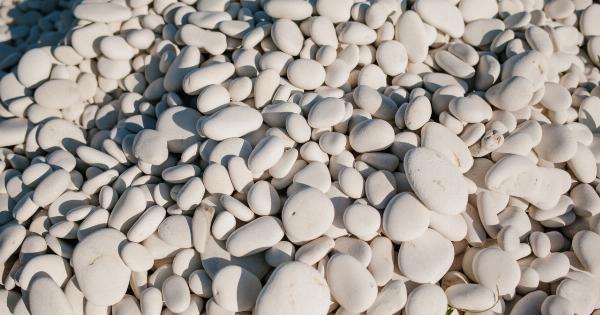Heartburn is a common digestive disorder that causes a burning sensation in the chest or upper abdomen. It occurs when stomach acid flows back into the esophagus, irritating the lining and causing discomfort.
While occasional heartburn is normal, frequent episodes can be bothersome and may indicate a more serious underlying condition.
1. Try Baking Soda
Baking soda, also known as sodium bicarbonate, is a natural antacid that can provide quick relief from heartburn. It works by neutralizing stomach acid and alleviating the burning sensation.
Simply mix ½ teaspoon of baking soda with a glass of water and drink it to help neutralize the acid in your stomach.
2. Incorporate Ginger into Your Diet
Ginger has long been used as a natural remedy for various digestive issues, including heartburn. Its anti-inflammatory properties can help reduce the inflammation and irritation in the esophagus.
You can add grated ginger to your meals, drink ginger tea, or take ginger supplements to soothe heartburn symptoms.
3. Slippery Elm Bark
Slippery elm bark is a herbal remedy that can provide relief from heartburn. It forms a soothing gel-like substance when mixed with water, which coats the esophagus and reduces irritation caused by stomach acid.
You can consume slippery elm bark in the form of capsules, lozenges, or tea to alleviate heartburn symptoms.
4. Chew Gum
Chewing sugar-free gum can help alleviate heartburn by increasing saliva production. Saliva contains bicarbonate, a natural antacid that can neutralize stomach acid.
Additionally, the act of chewing gum stimulates the production of saliva, which can help wash away the acid that causes heartburn.
5. Aloe Vera Juice
Aloe vera juice has been used for centuries to treat various digestive ailments, including heartburn. It has soothing properties that help reduce inflammation and provide relief from acid reflux.
Drinking a small amount of aloe vera juice before meals may help prevent heartburn or reduce its severity.
6. Elevate Your Upper Body
When you lie flat, stomach acid can more easily flow back into the esophagus, causing heartburn. Elevating your upper body while sleeping or resting can help prevent acid reflux.
You can use pillows or a wedge-shaped pillow to elevate your head and upper body, ensuring that gravity keeps the acid in your stomach.
7. Practice Stress-Relief Techniques
Stress and anxiety can worsen heartburn symptoms. Engaging in stress-relief techniques such as deep breathing, meditation, yoga, or tai chi may help reduce acid reflux.
These techniques promote relaxation and can help you manage stress levels, minimizing the occurrence and severity of heartburn episodes.
8. Maintain a Healthy Weight
Excess weight, especially around the abdomen, can put pressure on the stomach and esophagus. This pressure can cause stomach acid to flow back into the esophagus, leading to heartburn.
By maintaining a healthy weight through regular exercise and a balanced diet, you can reduce the frequency and intensity of heartburn.
9. Avoid Trigger Foods
Certain foods can trigger or worsen heartburn symptoms. It’s important to identify your personal trigger foods and avoid them as much as possible.
Common trigger foods include spicy or fatty foods, citrus fruits, tomatoes, caffeine, chocolate, and carbonated drinks. By avoiding these triggers, you can prevent heartburn episodes.
10. Quit Smoking
Smoking can exacerbate heartburn symptoms by weakening the lower esophageal sphincter (LES), a muscle that acts as a barrier between the stomach and esophagus.
When the LES is weakened, stomach acid can easily flow back into the esophagus, causing heartburn. Quitting smoking can improve your overall digestive health and reduce heartburn episodes.






























